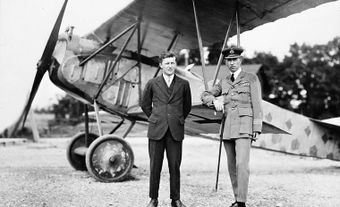Reserve Force of Canada
The Reserve Force of Canada comprises part-time members of the ARMED FORCES, whose role is to augment and support the Regular Force. Compulsory universal military service for early settlers eventually became part-time, volunteer soldiering. This reserve ("militia") tradition remained the dominant feature of Canadian military service, despite the evolution of a regular permanent land force; not until the 1950s did the regular components outnumber the reserves. The Royal Naval Canadian Volunteer Reserve was formed 1914, although there had been naval companies in colonial militias long before. The Canadian Air Force, established in 1920, was almost entirely an air militia until the 1924 formation of the Royal Canadian Air Force, which had its own reserve component from the beginning.
The present Reserve Force is made up of 4 parts: the Primary Reserve, the Supplementary Reserve, the Cadet Instructors Cadre (CIC) and the Canadian Rangers. The Primary Reserve is commanded by the Chief of the Defence Staff (CDS) through the Commanders of the various Commands or through the Commanders of intermediate formations. It consists of approximately 30 000 officers and non-commissioned members and is divided into the Naval Reserve, the Militia, the Air Reserve, the NDHQ Primary Reserve List and Communication Reserve; all are composed of volunteers who train evenings, on weekends or at short camps.
The Supplementary Reserve consists of approximately 54 000 officers and non-commissioned members who have left the Regular Force or Primary Reserve but are still available if needed. People with no previous military experience who have special skills or expertise that reflects a military requirement may also belong to the Supplementary Reserve, whose main purpose is to augment the other components of the Canadian Forces in times of national emergency or mobilization.
The approximately 6000 Officers of the CIC supervise, administer and train CADETS. The CIC represents the Army, Navy and Air Force.
The Canadian Rangers, whose special contribution is expert local knowledge, are reservists in sparsely settled areas that cannot be supported conveniently or economically by other Canadian Forces components. Rangers also support the Junior Canadian Ranger (JCR) program, a program sponsored by the Canadian Forces for youths 12 to 18 in remote and isolated communities.

 Share on Facebook
Share on Facebook Share on X
Share on X Share by Email
Share by Email Share on Google Classroom
Share on Google Classroom

